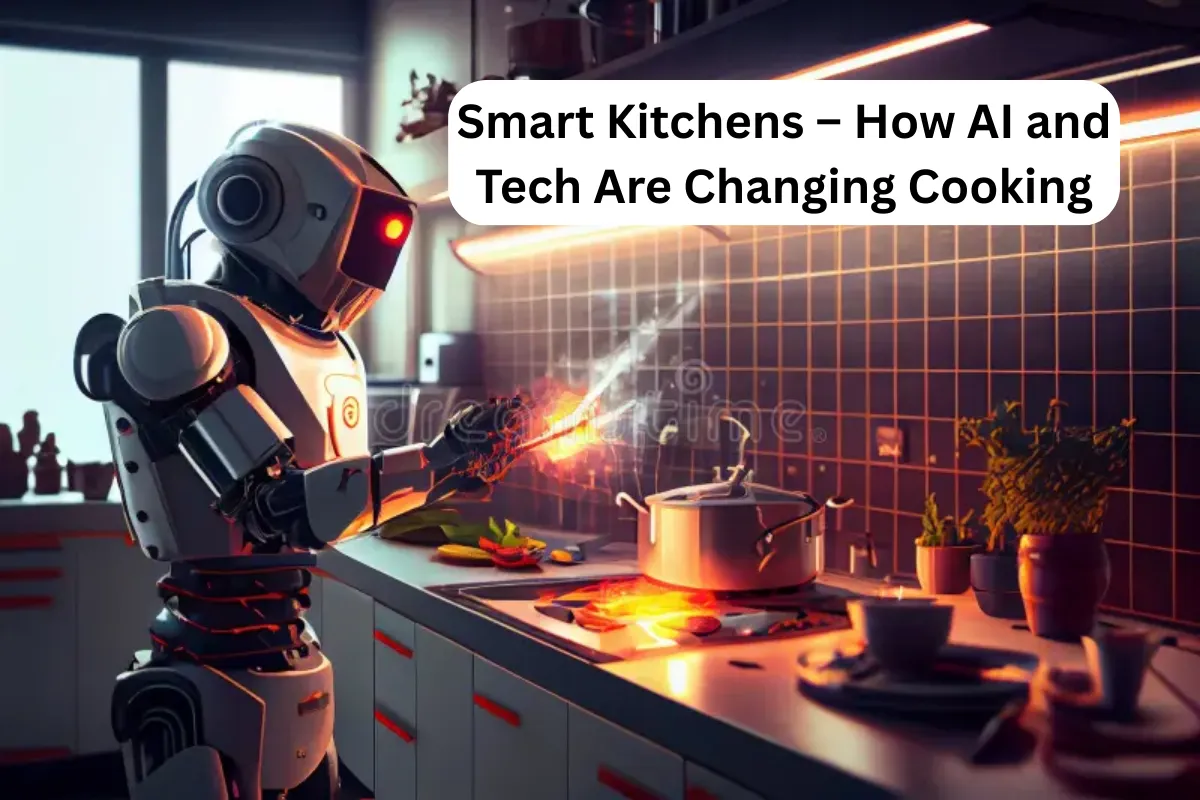Cooking has always been a balance of creativity and necessity. But in 2025, kitchens are no longer just about pots, pans, and recipes—they’re becoming intelligent, tech-driven hubs. From AI-powered meal planning to robotic chefs, technology is redefining the way we shop, cook, and even eat. Smart kitchens are not just about convenience; they promise healthier eating, less food waste, and more sustainable living.
This article explores how AI and modern technology are reshaping cooking—from personalized nutrition to futuristic kitchen gadgets—and what this means for the future of food.
The Rise of AI-Powered Cooking
Artificial Intelligence is the backbone of the smart kitchen revolution. Platforms like Samsung SmartThings and LG ThinQ already allow people to control ovens, fridges, and dishwashers from their phones. But AI goes much deeper:
- Recipe Recommendation Engines: Apps like SideChef and Whisk suggest meals based on dietary preferences and available ingredients.
- Personalized Nutrition: AI can analyze your health data and suggest meals aligned with calorie needs and wellness goals.
- Virtual Chefs: Some AI assistants are now capable of walking you through recipes step by step, adjusting cooking times based on your pace.
Smart Appliances: The Heart of the Modern Kitchen
Appliances are no longer “dumb machines.” Today, ovens preheat themselves, fridges track expiration dates, and dishwashers can order detergent when supplies run low.
Examples of Smart Kitchen Appliances:
- Smart Refrigerators: Samsung’s Family Hub can scan groceries, create shopping lists, and show recipes.
- Smart Ovens: June Oven and Tovala recognize food and automatically adjust cooking settings.
- AI Coffee Makers: Machines that remember your favorite brew strength and schedule it for your mornings.
- Voice-Activated Assistants: Amazon Alexa and Google Assistant integrate with appliances for hands-free cooking.
Benefits of Smart Kitchens
The transformation isn’t just about high-tech convenience. Smart kitchens bring tangible lifestyle improvements:
- Healthier Eating: AI suggests balanced meals and portion control.
- Less Food Waste: Smart fridges track expiration dates and remind you to use ingredients before they spoil.
- Time-Saving: Cooking robots and smart gadgets speed up prep time.
- Eco-Friendly: Energy-efficient appliances reduce power usage and carbon footprint.
- Personalized Experience: Tech tailors meals to individual tastes, diets, and health needs.
Table: Traditional vs. Smart Kitchens
| Feature | Traditional Kitchen | Smart Kitchen with AI & Tech |
|---|---|---|
| Cooking Guidance | Cookbooks, manual recipes | AI-powered assistants with step-by-step support |
| Appliance Use | Manual operation | Voice/phone-controlled smart devices |
| Food Management | Visual check, guesswork | Sensors track inventory & expiration dates |
| Meal Planning | Planned by user | AI-generated based on health goals |
| Energy Efficiency | Standard appliances | Smart energy-saving appliances |
| Customization | Limited | Personalized nutrition & recipe recommendations |
Real-Life Applications of Smart Kitchens
Smart kitchens aren’t futuristic dreams—they’re already here.
- Busy Parents: Use smart ovens that cook meals while helping kids with homework.
- Health Enthusiasts: AI apps track calorie intake and pair meals with workouts.
- Elderly Care: Smart devices provide reminders to eat and prevent accidents by auto-shutting appliances.
- Urban Living: Small apartments benefit from multi-functional AI gadgets that save space.
The Future of Cooking: What’s Next?
Looking forward, the smart kitchen is set to become even more advanced. Future trends include:
- Full Automation: Robotic chefs capable of cooking entire meals from scratch.
- AI Taste Profiles: Devices that learn your palate and recommend new cuisines.
- Blockchain Food Tracking: Ensuring food safety by tracing ingredients from farm to table.
- AR Cooking Classes: Virtual cooking lessons projected in real-time onto your countertop.
- Sustainable Cooking: Appliances optimized to minimize energy and water waste.
Challenges of Smart Kitchens
Despite their promise, smart kitchens face hurdles:
- High Costs: Smart appliances are more expensive than traditional ones.
- Privacy Concerns: Connected devices collect user data.
- Tech Dependence: Over-reliance on AI might reduce cooking skills.
- Compatibility Issues: Different brands don’t always sync smoothly.
The rise of AI and smart technology is reshaping how we approach cooking. With personalized nutrition, reduced waste, and automation, smart kitchens are more than just a luxury—they represent the future of healthy, sustainable living. While challenges remain, the benefits suggest that soon, every home will embrace at least some aspect of this revolution.
FAQs
1. What is a smart kitchen?
A smart kitchen uses AI and connected appliances to make cooking easier, healthier, and more efficient.
2. Are smart appliances worth it?
Yes, they save time, reduce waste, and provide convenience, though the initial cost is high.
3. Can AI really help me cook?
Absolutely. AI can suggest recipes, guide steps, and even adjust cooking times in real-time.
4. Do smart kitchens help with sustainability?
Yes, they cut food waste, optimize energy use, and encourage eco-friendly cooking habits.
5. What is the future of smart kitchens?
Expect more automation, robotics, and personalized nutrition systems designed around individual needs.
